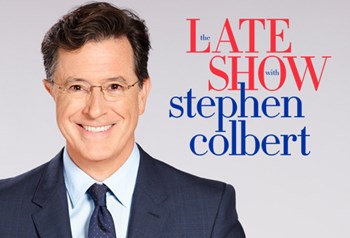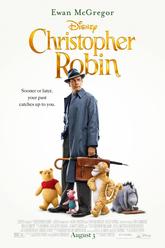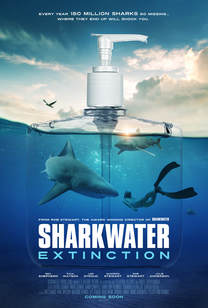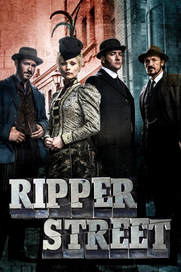|
Recently I watched some interviews from The Late Show with Stephen Colbert. Among the interviewees on the same night were Nicki Minaj (singer) and Ronny Chieng (actor). As it happens so often on talk shows the focus of men and women's interviews follows a similar pattern in which the man's interview is non-sexualized, whereas the woman's is and more often than not focuses on her looks. In this episode Colbert and Chieng discussed Chieng's origins, the places he has lived, his recent movie, Hollywood and the 1%. Minaj's interview on the other hand focused on her sex life, her looks and flirting with Colbert, as well as the cover of her new album, in which she appears topless and practically nude.
Although this post focuses solely on one episode of The Late Show with Stephen Colbert this double standard is a pattern that can readily be observed on many talk shows. Women are still objectified, sexualized interviewees, whereas men are treated as people who are not simply one-dimensional. © 2018 Alline Cormier
0 Comments
Recently I posted an article about the soon to be released movie Christopher Robin and expressed my doubts about it passing the Bechdel Test--a test that serves as an indicator of the active presence of women in movies. Now it is out, and I have seen it. Even though no two women ever speak it still passes the Bechdel Test—just barely--because two named female characters (a mother and daughter) exchange a few lines about something besides a man. These exchanges make up less than five minutes of the 1 hr 44 min. movie. The rest of the time all the dialogue is between males or a male and a female. So in terms of voice this Disney movie, like countless Disney movies that came before it, scores poorly in terms of voice. As I asked in my previous post about this movie (July 23, 2018): If it does not strike you as odd that no two women ever speak in a feature length movie ask yourself this: how many movies can you name in which no two men ever speak?
© 2018 Alline Cormier This week the trailer for Rob Stewart's new documentary, Sharkwater Extinction, was released. In his third film about sharks--the activist and filmmaker also directed Sharkwater (2006) and Revolution (2012)--he exposes the shark fin industry and the political corruption behind it. The tagline reads: Every year 150 million sharks go missing... where they end up will shock you. Sharkwater won many awards and both Sharkwater and Revolution were amazing documentaries, definitely among my favourite. According to the film's website, "Shark finning is still rampant, shark fin soup is still being consumed on an enormous scale, and endangered sharks are now also being used to make products for human consumption."
Rob Stewart also wrote Sharkwater: An Odyssey to Save the Planet (2007) and Save the Humans (2012). Sadly, the 37-year-old Canadian filmmaker died while scuba diving in January 2017, during the making of Sharkwater Extinction. He is one of my heroes. His conservation work and passion for ocean wildlife were inspiring. Sharkwater Extinction will be released on October 5, 2018, and will be premiering at TIFF (the Toronto International Film Festival). This is a film you don't want to miss. © 2018 Alline Cormier To begin with, Ripper Street, which takes its name from Jack the Ripper, the unidentified criminal behind the most infamous unsolved serial murders London has ever known and who continues to fascinate the world 130 years later, is a misleading title for this TV series that ran for five seasons. A more accurate, and admittedly far less catchy, title would have been London police, crime and prostitutes in the late 19th century. The trouble with calling the show Ripper Street is that it has very little to do with its namesake. Of course, people in publishing/TV/movies know that Jack the Ripper sells. In a 2015 Wall Street Journal story about him an author was quoted as saying: “Publishers know that any book about Jack the Ripper sells.”[1] Publishers aren't the only ones.
So far I have analysed the first seven episodes. The first episode begins with a man giving a tour of the Ripper's 'haunts' and three of his murder victims are subsequently named (Mary Jane Kelly, Catherine Eddowes and Elizabeth Stride) but then the show moves on to pornography and a man who makes pornographic movies and kills women. The second episode focuses on a Jewish boy who is to hang for murdering a man, the third on a man who attempts to poison the population of London, the fourth on a young woman whom a psychiatrist gave to a man to be his sex slave... the seventh on Americans who go to London seeking revenge on a man. Newspaper clippings of the Ripper murders appear from time to time, usually in the possession of a man who is connected to a woman's murder. However, next to nothing is said of Jack the Ripper or his victims in the first seven episodes. What the Ripper Street episodes are full of is violence against women and disparaging comments made about women. They are routinely referred to as tarts and whores and occasionally as wenches and b*tches. Violent acts perpetrated against them include murder, attempted murder, abduction, sequestration, manhandling, strangling, slapping, punching, drugging and hair pulling. Women are shown gagged, bound and beaten. They are shown with their necks slit and their faces, including their eyes, cut. This is a show about three men, a detective inspector and his two assistants. Five of the first seven episodes fail the Bechdel test—a test that serves as an indicator of the active presence of women in movies—either because no two named female characters ever speak or they never speak about something other than a male. Here female characters play supportive roles: they are prostitutes men have sex with, wives and beaten or murdered women. They have very few lines, and prostitutes make up the majority of the female characters. Basically it is a sexist, voyeuristic show that has little to offer women. It does, however, have much to offer sexist, not to say misogynist, men: women being routinely abused, demeaned, insulted and murdered; women bought to pleasure men; a man receiving fellatio for free from a sexually exploited woman; men looking over pornographic postcards (in several shots); and two snuff films in which the murderer is a man and the victim is a woman. Ripper Street presents the same fare that can be seen in countless movies and TV shows. The novelty resides in the fact that it is set in late 19th century London, so the sets offer the audience something it doesn't see every day. The different time period (over a century ago) reminds women that men have always abused and murdered them—something we know full well and are tired of seeing on screens, be they big or small. Ripper Street could have had a greater appeal for a female audience if it had focused on the Ripper's victims, their lives, their loved ones and included women who play substantial roles, not just supportive ones. But then, the series was created and directed by a man (Richard Warlow)—as most media is—and historically men in the TV/film industry have shown themselves oblivious and indifferent to the things female audiences want. [1] Wall Street Journal, Who was Jack the Ripper? New books try to crack the case, Oct. 5, 2015, Tobias Grey © 2018 Alline Cormier |
Categories |





 RSS Feed
RSS Feed